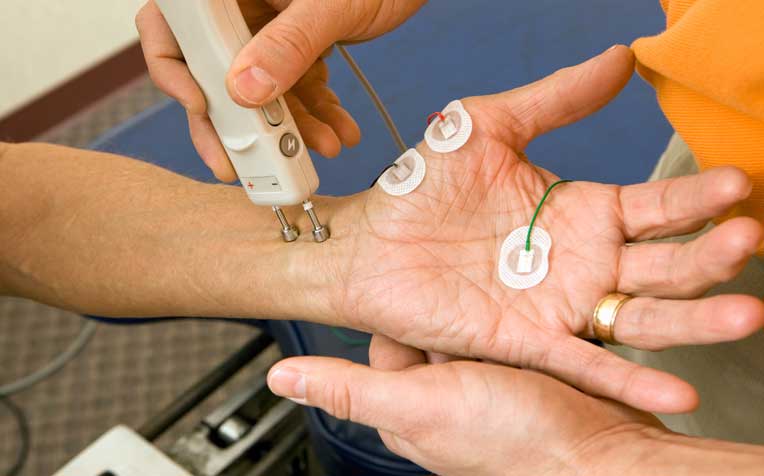
Sensory peripheral neuropathy can be caused by diabetes, carpal tunnel syndrome, and infections.
What causes sensory peripheral neuropathy?
About a third of peripheral neuropathy cases have no known causes. Another third is caused by diabetes. Physical injuries or trauma to the nerves, such as carpal tunnel syndrome, can also lead to nerve disorders.
Other causes may include infections, toxins (e.g. alcohol), metabolic or hormonal imbalance like hypothyroidism, autoimmune disorders, tumours pressing on the nerves, vitamin B-12 deficiency, and hereditary conditions like Charcot-Marie-Tooth disease.
How is sensory peripheral neuropathy diagnosed?
The doctor will first conduct a physical and neurological exam to test your body’s reflexes, coordination, and ability to experience different types of sensations.
A nerve conduction test, alongside an electromyography, may be carried out to evaluate how well electrical signals travel along the peripheral nerves. This helps to confirm the presence of a peripheral neuropathy, its severity and the type of nerve damage (e.g. demyelinating versus axonal). Any alternation of signals could indicate a nerve disorder.
Blood tests screening for diabetes, low thyroid hormone and vitamin B-12 deficiency may be carried out as well.
Treatment for sensory peripheral neuropathy
Doctors will first treat the underlying cause of sensory peripheral neuropathy. Pain relief medications can be prescribed to relieve nerve pain. Physical therapy and exercise are recommended to restore strength and coordination to the limbs.
“Patients with sensory peripheral neuropathy suffer from sensory loss in their feet. To prevent falls, they should walk on even ground and avoid dimly lit areas,” says Dr Josiah Chai, Senior Consultant, Department of Neurology, National Neuroscience Institute (NNI), a member of the SingHealth group. “Damaged peripheral nerves may regenerate with proper care, but the symptoms will return unless the root cause is removed,” he adds.
One last word of advice from the specialist: Don’t walk bare-footed, especially if you suffer from diabetes.
Contributed by
Related Articles
Conditions & Treatments
Public Events
Get the Health Buddy App
© 2025 SingHealth Group. All Rights Reserved.















 Get it on Google Play
Get it on Google Play